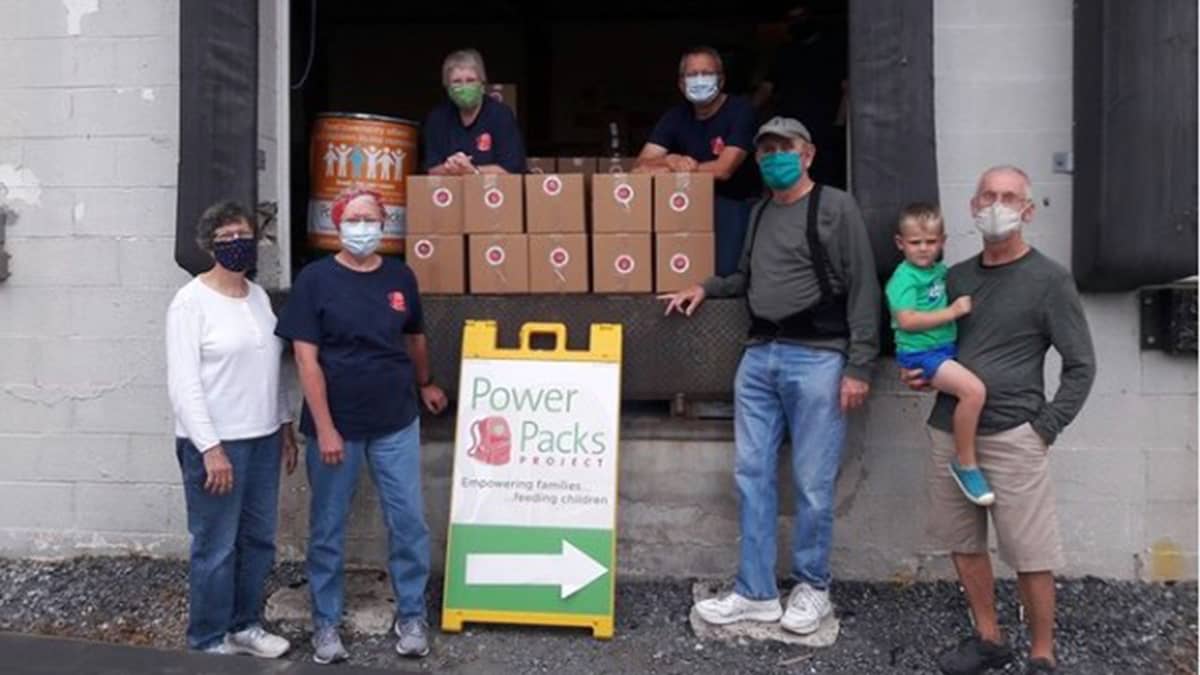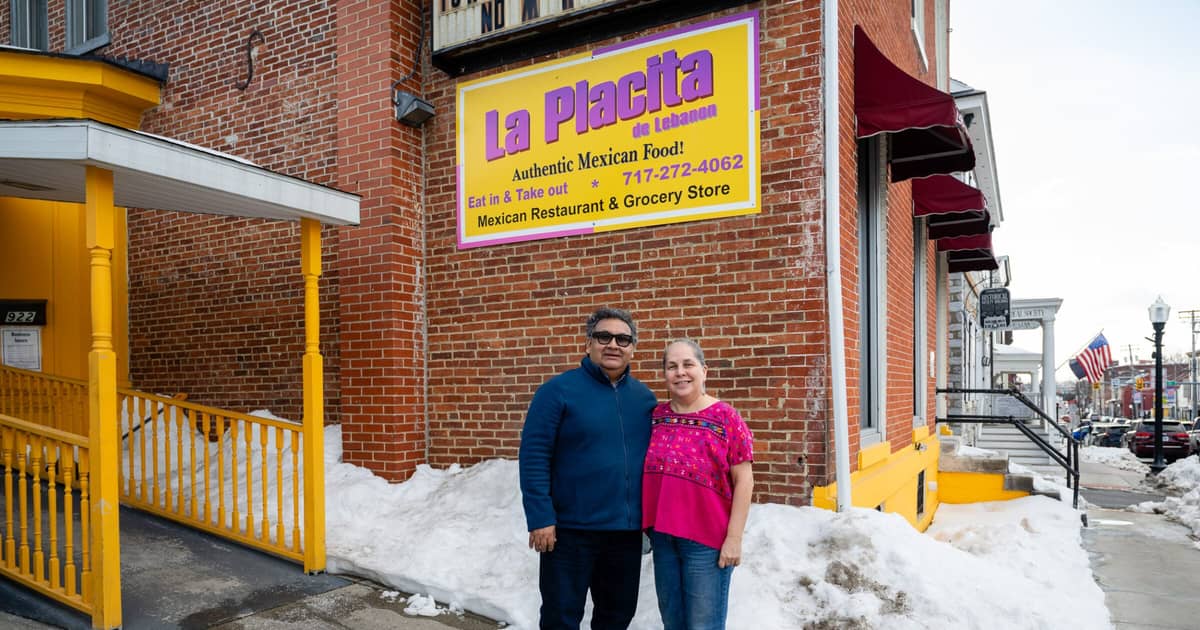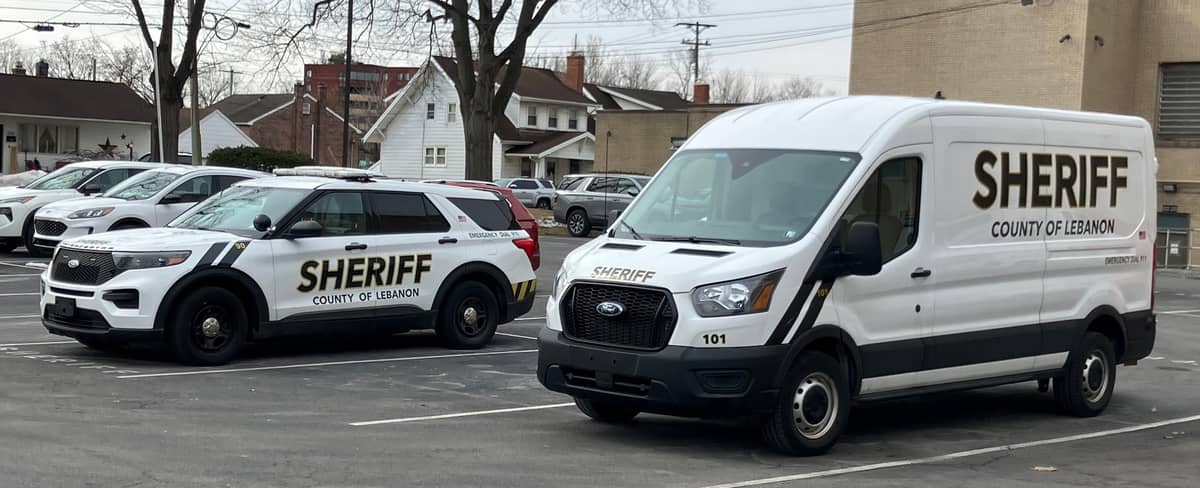The Power Packs Project, a nonprofit serving both Lebanon and Lancaster counties, has thoughtfully provided food for families for the past 16 years.
Instead of simply handing out prepackaged meals, Power Packs provides boxes including one pound of protein, two pounds of produce, shelf-stable items, milk, and a recipe each week to participating families. This method empowers those families by teaching them what ingredients to shop for and how to prepare nutritious meals. Power Packs believes in the saying, “Give a man a fish and he eats for a day. Teach a man to fish and he eats for a lifetime.”
“Our goal is to empower, educate, and feed,” Caitlin Lockard, the program coordinator for the Lebanon region Power Packs Project, said. “We want to make the families in our program stronger and have more confidence when shopping for food and preparing nutritious meals.”
Joan Espenshade founded Power Packs after volunteering in a Lancaster County school and seeing children repeatedly in the nurse’s office on Monday mornings. When she asked why they were sick, Espenshade was told that the children had not eaten since the previous Friday at school.
“Joan knew she had to do something and Power Packs Project was born as a weekend nutritional program for children who are at risk for going hungry when school meals are not available,” Lockard said.
Now aiding entire families, Power Packs still operates by partnering with schools. With schools shutting down or cutting hours due to COVID-19, resulting in children having less access to free meals, Power Packs’ mission is increasingly important.

Currently, Power Packs partners with five school districts in Lebanon County and 11 in Lancaster County. While volunteers previously packed the items for families at the schools, volunteers now assemble the goods in warehouses prior to distribution. Volunteers are stationed at least six feet apart, follow CDC guidelines and have shorter shifts.
“Volunteers are the lifeline of Power Packs,” Lockard said. “Without our volunteers, we would be unable to do the important work that we do in the community.”
Lockard shared that there are many different roles for volunteers to take on.
“We have drivers who drive our packs from our warehouse to the schools or distribution sites,” Lockard said. “We have volunteers in charge of packing the packs, which could occur at our warehouse or at the distribution site. We also have volunteers who are willing to come out as a group and prepare special items that will be sent out to our families for future recipes. We also have volunteers who take on administrative tasks in our offices.”
Those interested in volunteering for Power Packs in Lebanon can email Lockard at caitlin@powerpacksproject.org. Those in the Lancaster area can contact Annette Rosa-Pabon at annette@powerpacksproject.org.
For those unable to give their time, Power Packs accepts financial donations. Through various partnerships, Power Packs is able to buy more food with a dollar than the average consumer could at the grocery store.
“Power Packs Project is not a food handout,” Lockard said. “This is a program that aims to empower our neighbors in need and to improve the communities that we live in, one family at a time.”
For more information or to donate, visit www.powerpackprojects.org.
Questions about this story? Suggestions for a future LebTown article? Reach our newsroom using this contact form and we’ll do our best to get back to you.

Join our community of local news champions.
Cancel anytime.
Monthly Subscription
🌟 Annual Subscription
- Still no paywall!
- Fewer ads
- Exclusive events and emails
- All monthly benefits
- Most popular option
- Make a bigger impact
Already a member? Log in here to hide these messages
Our community deserves strong local news. LebTown delivers in-depth coverage that helps you navigate daily life—from school board decisions to public safety to local business openings. Join our supporters with a monthly or annual membership, or make a one-time contribution. Cancel anytime.
This article was updated to clarify that Power Packs works with five districts in Lebanon County, not five schools as originally stated.
























